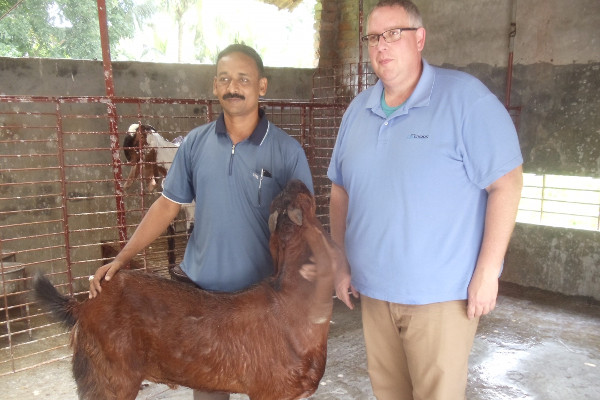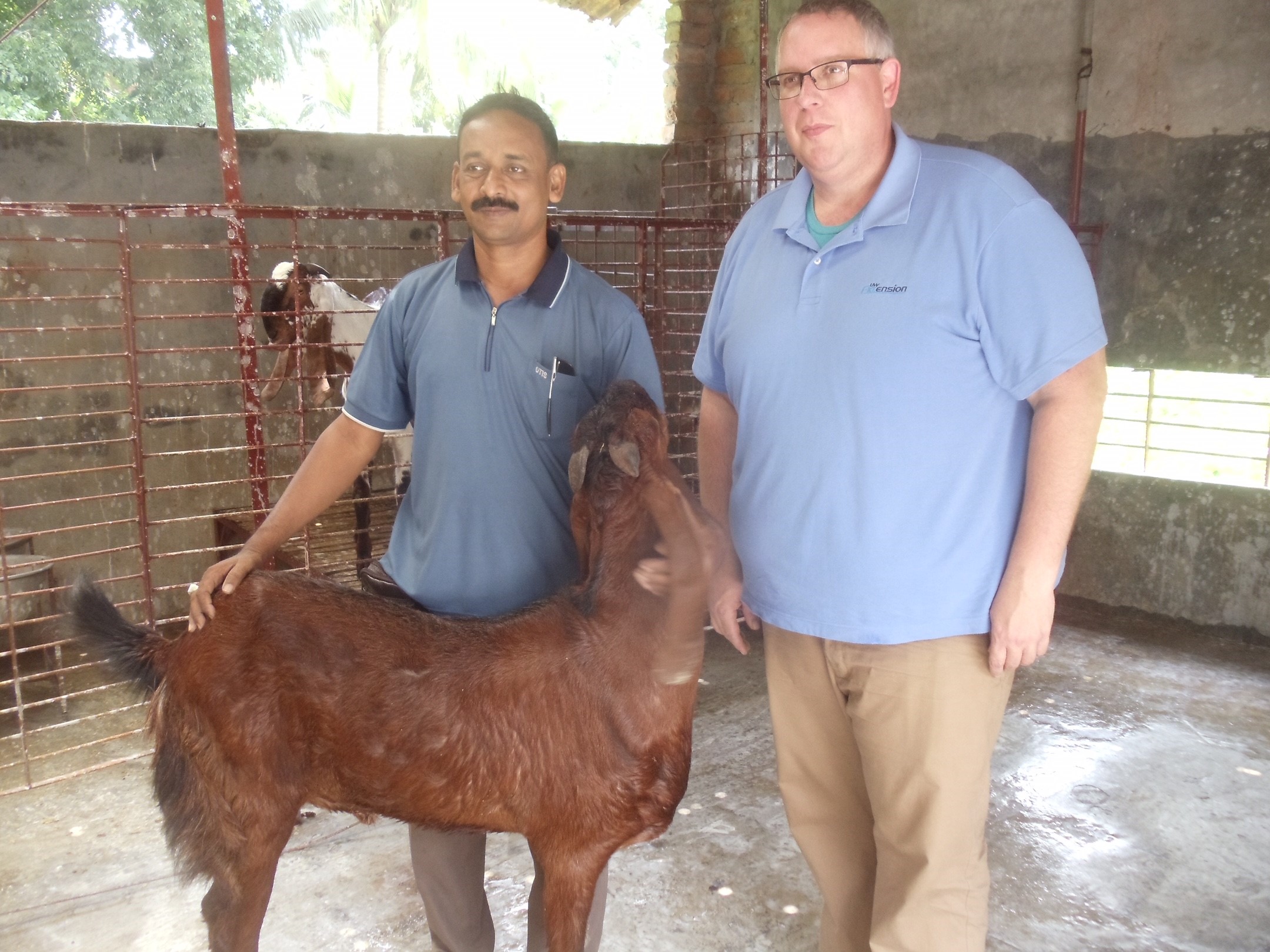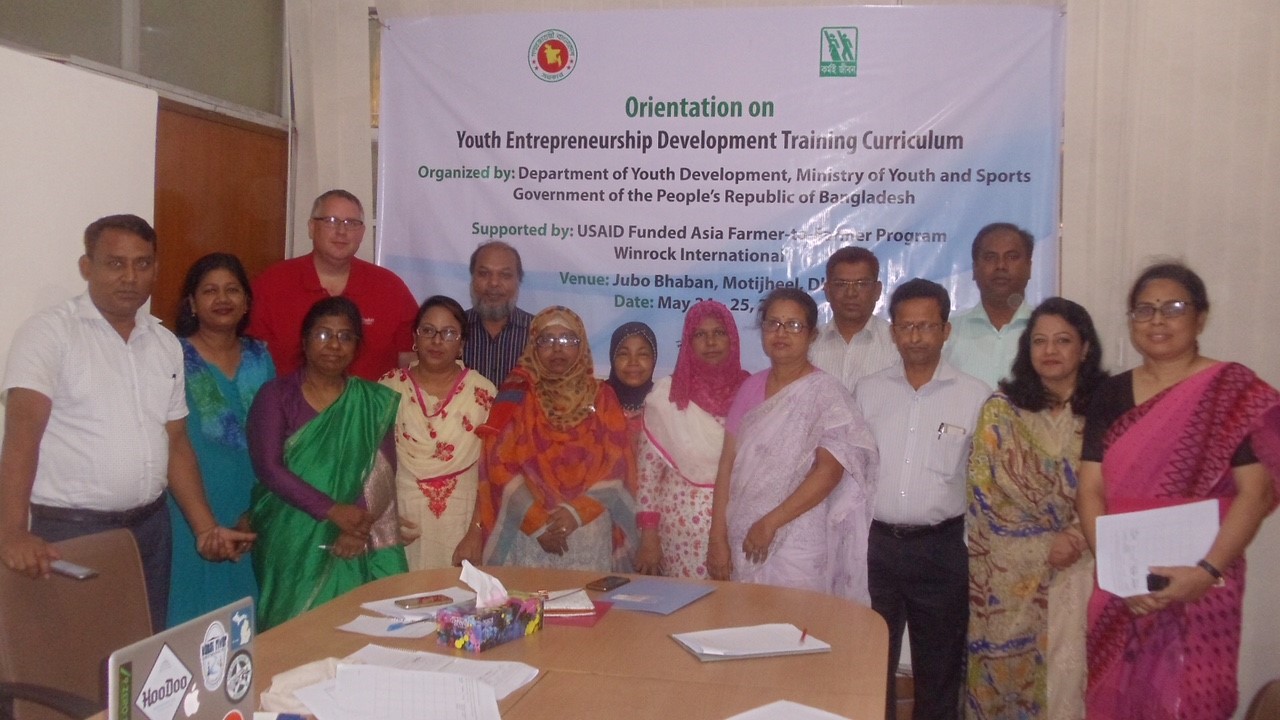
Volunteer Post
Bangladesh and Wisconsin–Worlds Apart, Yet Farmers Experience Similar Challenges
F2F Volunteer, Dr. James Anderson III
This week’s blog comes from, Dr. James Anderson III, Assistant Professor of Community & Economic Development at the University of Wisconsin- Extension.
In May 2017, I had the privilege of traveling to Bangladesh for my first international volunteer assignment through Winrock International. My assignment was to work with the Bangladesh Department of Youth Development to develop an entrepreneurship curriculum. The assignment was through the Farmer-to-Farmer Program funded by USAID.
I had no idea what to expect during my visit. I knew Bangladesh has a large population of about 160 million people, and is roughly the size of the U.S. state, Iowa. I also knew that while the economy was growing, as the economy transitions to more manufacturing from being primarily agriculture… the economy was also struggling to create enough jobs for citizens. This was the basis for my statement of work, to develop a curriculum that the Department of Youth Development can use to help people that it provides vocational and technical training to transition to self-employment and entrepreneurship.
The first week of my visit was dedicated to conducting a needs assessment. During this time Dr. S.M.S Rahman, from the Dhaka Winrock International office, guided me through Jessore, Rangpur, Khulna, and Dhaka. We visited Department of Youth Development residential training facilities, Youth Training Centers, and entrepreneurs who started their businesses after receiving training. These entrepreneurs were operating relatively new businesses, the youngest business being about two years old and the most mature being close to five years old.
While Bangladesh and Superior, Wisconsin, where I live, are half a world apart, I was struck by the common issues entrepreneurs experience. For aspiring entrepreneurs, access to capital was the number one identified issue during our visits. Entrepreneurs and students at the training centers were surprised when I indicated access to capital is a challenge in the United States as well. In addition, I was surprised by the commonalities the farmers in Bangladesh experience compared to farmers in Wisconsin and the United States.
We visited dairy, goat, poultry, and field crop farms; as well as textiles businesses. The farms all indicated the same market pressures – increasing input costs (seed, feed, fertilizer, labor, etc.), and reduced market rates for their product (e.g., milk and rice). Our farms in Wisconsin are experiencing the very same issues. We sometimes think that market forces only influence ourselves and neighbors, but clearly we share many of the same challenges globally.

During week two, I revised the curriculum based on the needs assessment data from week one. I then presented the curriculum to the Department of Youth Development, part of the Ministry of Youth & Sports. Following feedback from the department and another round of revisions, I offered a two-day seminar to trainers from the department. One of my lessons learned from teaching and supporting entrepreneurs in the United States is that the training needs to be very applied and hands-on. We spent much of our time together going over the activities that were contained in the curriculum, and the learning opportunities from those activities.

Now that I am back home, I have had time to reflect on this very busy, yet rewarding trip to Bangladesh. I am struck by the friendliness of the people that I met. I have been afforded the opportunity to travel a lot for personal and educational reasons. I don’t believe I’ve ever traveled anywhere where everyone I met was so welcoming and friendly. My final observation while reflecting on this trip is the nature of resiliency in the people of Bangladesh. Research concerning the common traits of successful entrepreneurs often includes the word resiliency or something very similar. I have no doubt that many people in Bangladesh who aspire to be entrepreneurs and self-employed possess the core trait of resiliency. The economy has challenged many families and individuals, yet there is incredible optimism that they can and will improve circumstances for themselves and their country.
